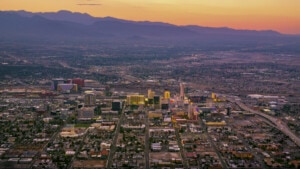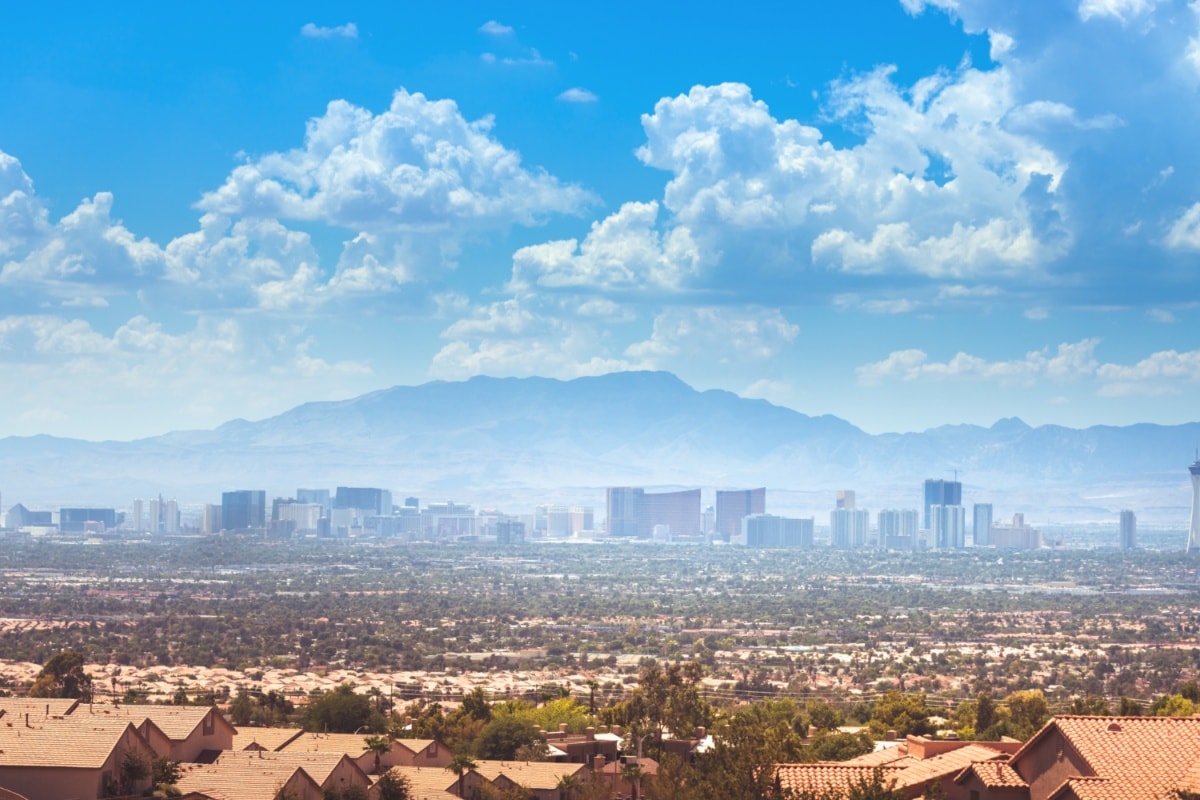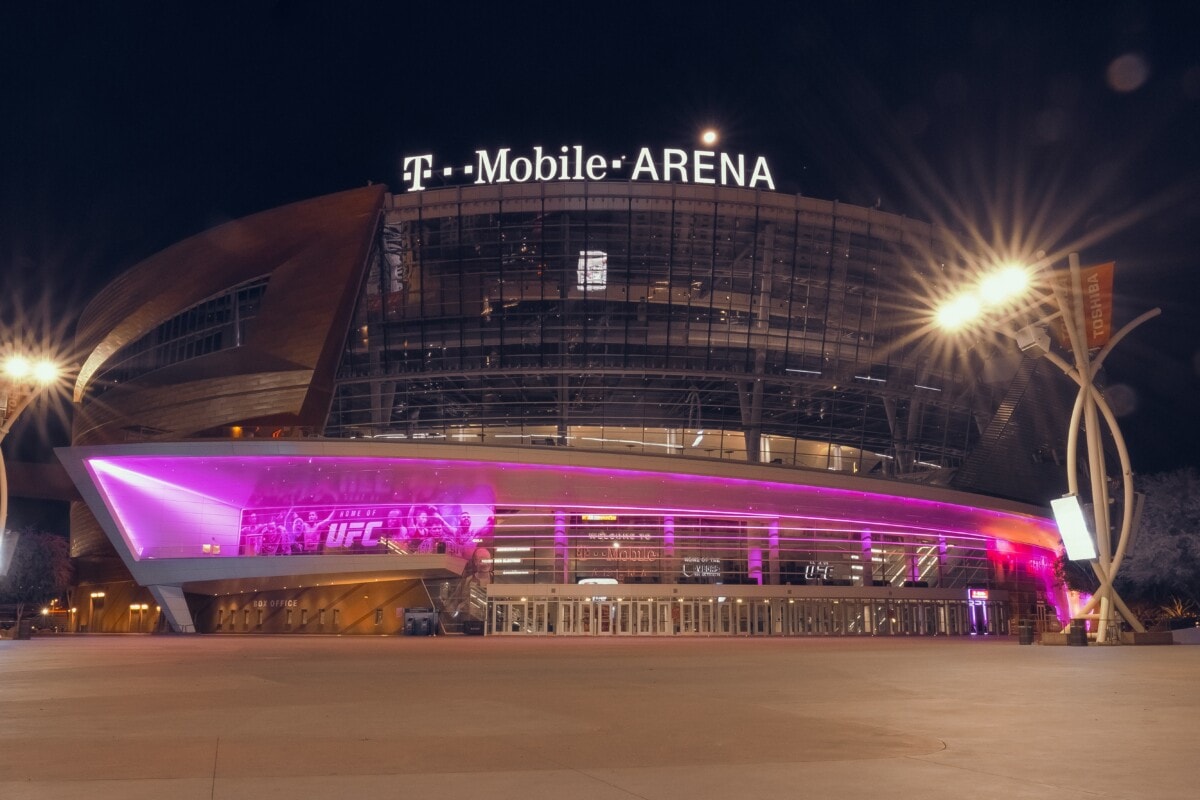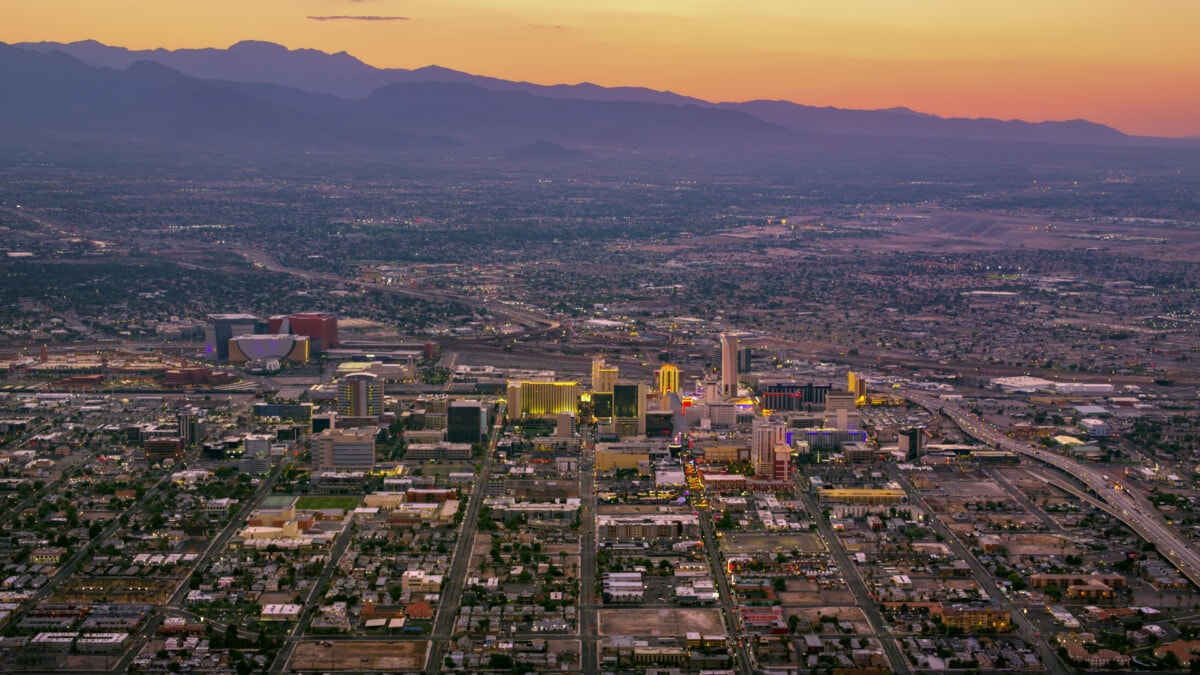
Las Vegas, with its glitz, glamor, and vibrant entertainment scene, has long been synonymous with a thrilling vacation destination. However, when it comes to choosing a place to call home, many wonder if Las Vegas truly offers a desirable living environment. To help you make an informed decision, let’s explore the pros and cons of living in Las Vegas. From the excitement of world-class entertainment and access to outdoor pursuits to the challenges of scorching summers and traffic congestion, Las Vegas presents many different factors to consider. So, whether you’re looking to rent an apartment in Las Vegas, purchase a home in the area on Redfin, or simply curious about what it’s like living in Las Vegas, join us as we delve into 11 pros and cons to help you determine if Las Vegas is the right place for you to put down roots.

Pros of living in Las Vegas
1. An abundance of activities
Las Vegas, known as the “Entertainment Capital of the World,” offers an unparalleled number of activities for visitors of all interests. From iconic resorts along the famous Las Vegas Strip like Mandalay Bay and the Venetian to downtown’s Fremont Street, visitors can explore an array of casinos, live performances, and stage productions. Beyond the gaming and entertainment scene, Las Vegas also offers luxurious shopping experiences, championship golf courses, and rejuvenating spas. For outdoor enthusiasts, the city is surrounded by stunning natural landscapes, such as the nearby Red Rock Canyon and the Hoover Dam. Additionally, Las Vegas boasts a wide range of gourmet dining options, from celebrity chef restaurants to international cuisines. Some of which include Bouchon, Peppermill, and Carson Kitchen.
2. Food scene
Las Vegas has established itself as a food lover’s paradise, offering a remarkable culinary scene that rivals some of the world’s finest cities. Renowned for its diverse and extravagant dining options, Las Vegas boasts a multitude of Michelin-starred restaurants and celebrity chef establishments like Piccaso, Joel Robuchon, Gordon Ramsay Steak, and Giada.
The Las Vegas Strip alone is home to a staggering array of dining choices, where visitors can savor cuisines from around the globe, including Japanese, Italian, French, Mexican, and many more. Additionally, Las Vegas hosts numerous food festivals and events throughout the year, such as The Great American Foodie Fest and San Gennaro Feast. For those seeking a more casual dining experience, Las Vegas also offers an array of bustling food courts and food trucks like Block 16 Urban Food Hall and Eataly Food Court at Park MGM.
3. Access to nature
Despite its reputation as a bustling city of lights, Las Vegas provides easy access to breathtaking natural wonders and outdoor recreational opportunities. One of the most popular destinations is the nearby Red Rock Canyon National Conservation Area, known for its striking red sandstone formations and picturesque hiking trails. Adventurers can embark on scenic drives, rock climbing adventures, or simply take in the views. Moreover, within a few hours’ drive, outdoor enthusiasts can reach several national parks, including Death Valley National Park, Zion National Park, Bryce Canyon National Park, Joshua Tree National Park, and Grand Canyon National Park.

4. No state income tax
One of the significant advantages of living or working in Las Vegas is the absence of state income tax, as Nevada does not impose a personal income tax on its residents. This favorable tax environment means that individuals can keep a larger portion of their earnings compared to many other states in the United States.
5. Great airport
Las Vegas is served by Harry Reid International Airport, which is one of the busiest airports in the United States. As a major transportation hub, Harry Reid International Airport offers excellent connectivity to domestic and international destinations, making it convenient for travelers from around the world. The airport is located just a few miles south of the Las Vegas Strip, allowing for easy access to the city’s resorts and attractions.
6. An up-and-coming sports city
Las Vegas has rapidly emerged as a thriving destination for sports boasting an exciting and up-and-coming sports scene. The National Hockey League (NHL) welcomed the Vegas Golden Knights in 2017. Since its inception, the Golden Knights have made it to two Stanley Cup Finals, one in 2018 and another in 2023. Furthermore, professional football arrived in Las Vegas with the relocation of the Oakland Raiders to become the Las Vegas Raiders in 2020. The state-of-the-art Allegiant Stadium, situated just off the Strip, serves as the team’s impressive home venue. Las Vegas also is home to the Las Vegas Aces, a professional women’s basketball team. The Aces have quickly become a force to be reckoned with, boasting a talented roster and consistently making their mark in the league.

Cons of living in Las Vegas
7. The summer heat
Las Vegas is notorious for its scorching summer heat, creating challenging conditions for residents and visitors. With temperatures often soaring well above 100 degrees Fahrenheit (37 degrees Celsius), the intense heat can be overwhelming and uncomfortable. The relentless sun and lack of shade make outdoor activities during the daytime difficult.
8. Lack of public transportation
One of the challenges in Las Vegas is the limited availability and effectiveness of public transportation. While the city has made efforts to improve its transportation infrastructure, including the implementation of a bus system and the Las Vegas Monorail, the overall public transportation network remains relatively underdeveloped compared to other major cities. The bus system, while serving some areas, may not offer comprehensive coverage, resulting in longer travel times and limited access to certain destinations. The Las Vegas Monorail primarily operates along the Las Vegas Strip, making it convenient for travelers staying in that area but less useful for those needing to reach other parts of the city. As a result, many residents and visitors rely heavily on private vehicles or rideshares to navigate Las Vegas.
9. Lack of greenery
One of the drawbacks of Las Vegas is its noticeable lack of greenery. The desert landscape surrounding the city means that lush vegetation and expansive green spaces are scarce. Instead, visitors and residents are greeted with a predominance of arid desert terrain characterized by rocky terrain, sparse vegetation, and a limited presence of trees and plants. This scarcity of greenery can make the city feel stark and somewhat monotonous in terms of natural scenery.

10. You can’t see stars
One disappointing aspect of Las Vegas is the difficulty in seeing stars due to light pollution. The city’s vibrant nightlife and dazzling displays along the famous Las Vegas Strip create a continuous glow that permeates the sky, obscuring the natural beauty of the stars. The abundance of bright lights, neon signs, and illuminated buildings results in light pollution, which significantly diminishes the visibility of celestial objects. If you want to go star-gazing, expect to drive well outside the city before you begin to see twinkles in the night’s sky.
11. No four seasons
One aspect that some may find disappointing about Las Vegas is the absence of four distinct seasons. The city’s desert climate contributes to hot, dry summers and mild winters, with relatively little variation throughout the year. This lack of distinct seasonal changes can make it feel as though the year blends together without clear transitions between spring, summer, fall, and winter.
The post Is Las Vegas a Good Place to Live? 11 Pros and Cons to Help You Decide appeared first on Redfin | Real Estate Tips for Home Buying, Selling & More.
